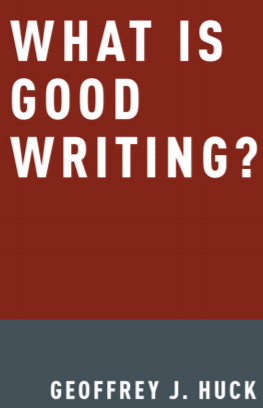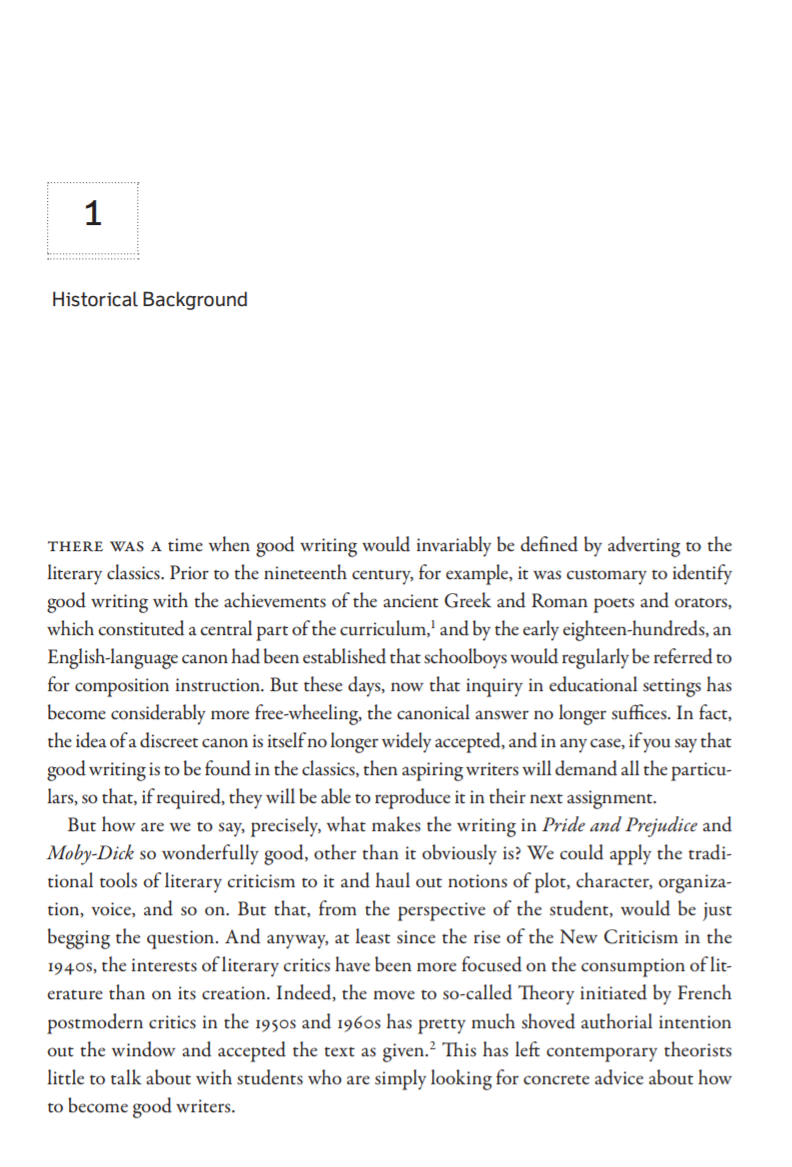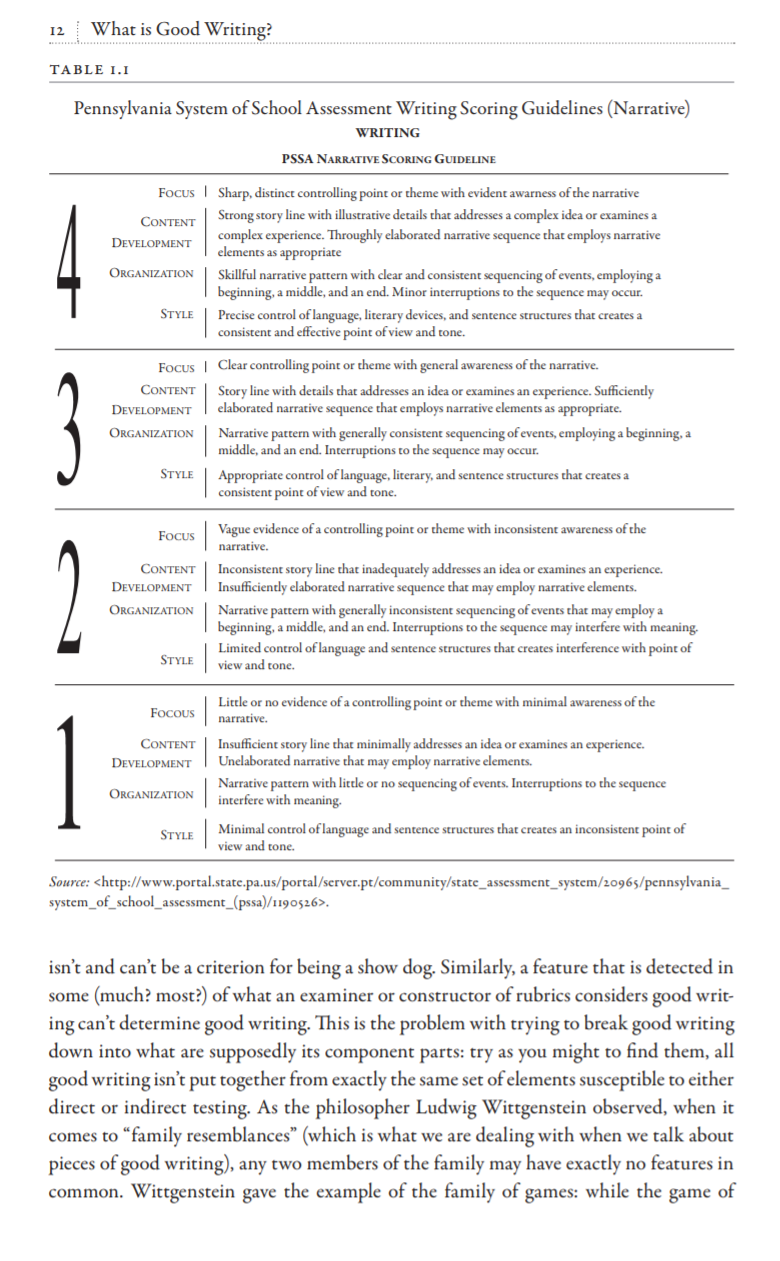Though we all think we know what good writing is when we see it, it's difficult to define it precisely; and without a satisfactory definition, it becomes problematical to assess as well as to teach. In What Is Good Writing?, Geoffrey J. Huck advances the contemporary debate on writing achievement by drawing on empirical research in linguistics and the other cognitive sciences that shed light on the development of fluency in language. The utility of defining "good writing" as "fluent writing" or writing that is on par with the typical fluency in speech attained by normal adults, is demonstrated by the progress it permits in evaluating the success of current writing programs in school and university--programs which, for the most part, have proved unable to deliver writing assessments that are both valid and reliable. Huck advances an alternative approach that rests on more scientific footing. He explains why reading is key to good writing and why standard composition programs often do not live up to their aspirations.
For copyright holders: If the material violates your rights for any reason, please write to us at the : velesa66@gmail.com
Автор: Huck G. J. / Хак Дж. Дж.
Издатель: Oxford University Press; 1 edition (1 July 2015)
Язык курса: Английский
ISBN: 978-0-19-021295-7
Формат: PDF
Качество: Издательский макет или текст (eBook)
Кол-во страниц: 231




